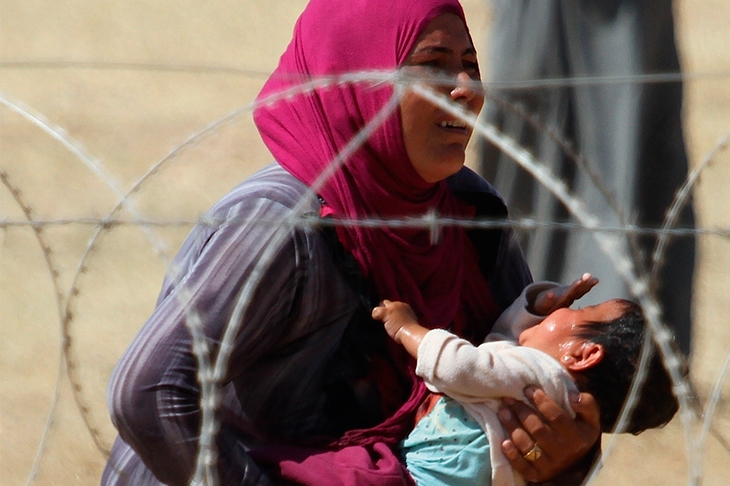In my work as a reviewer, a small, steady proportion of all the books publishers send me concern the Holocaust. With middle age has come a curious foreshortening of my perspective on modern history so that, paradoxically, the Nazis’ inhumanity has begun to seem less distant in time and, therefore, more horrible still. Fortunately I can reassure myself that, objectively, it happened long ago and that even the atrocities of eastern Europe and Rwanda are now a couple of decades safely in the past.
Such consolations vanish when confronted by The Raqqa Diaries, which is shockingly of the present. It is a terrible reminder that we are unwise to impute any kind of teleology to history. Raqqa is the capital of the so-called Islamic State and this is a portrait of daily life there by the pseudonymous author. He smuggled it out at the risk of beheading and it was first broadcast on Radio 4’s Today programme. It has now been collected into this slim volume.
To begin with, Raqqa is wrested from the Assad regime by a coalition of the Free Syrian Army and two Islamist groups. Samer believes his city is free from oppression, but then Isis seizes control and a descent into hell begins. By now we know the broad lineaments of Isis’s mistreatment of civilians, but Samer’s straightforward account carries an intense, claustrophobic horror.
He witnesses sexual slavery: his girlfriend is blackmailed into marriage with an Isis fighter to gain her brother’s release from captivity. There is financial extortion: he sees jihadists demand exorbitant sums of money from tradespeople, driving them to destitution. Yet it is compulsive, barbaric and pitiless murder that lends Isis notoriety. If the Nazis attempted to keep their atrocities hidden (as even Assad does), Isis has no such scruples. Repeatedly, Samer observes the public beheading of individuals suspected of opposition. Repeatedly, he sees the mutilated bodies of friends on prominent display. Day after day, he lives with the knowledge that his own execution could be next. Soon he learns he is on Isis’s blacklist and that he must try to escape.
The arrested development of Isis’s members becomes evident. It is cruelty of the kind disturbed adolescents dish out to hamsters and other defenceless pets. Its inassimilability into an adult morality means it can assume a cartoon flavour. It is regrettable, therefore, that stylised illustrations have been interpolated into the diaries, because they reinforce this egregious disorientation and diminish the trauma of Samer’s testimony.
While Samer does not discuss international intervention at length, it is ironic that one of the agents who wishes to extirpate Isis from the Levant, in the form of President Trump, also carries connotations of the cartoon. Unfortunately we know that Isis will most likely resemble the spider that is squashed only for myriad baby spiders to scatter in all directions, here in the form of terrorists posing as refugees and perpetrating atrocities wherever they go.
When Samer’s diary ends he is a refugee in Syrian territory controlled by the Free Syrian Army. Despite everything, he retains a positive view of history, holding onto the notion that good will prevail eventually in his country. Patently, if that happens at all, it could take decades. All the while his compatriots continue to flee abroad in their thousands. Their migration offers another promise of happy endings, though in truth many of them will fail in their efforts to integrate successfully into new cultures. These struggles are, in their own mundane ways, as heroic as Samer’s fight against Isis but — perhaps regrettably — do not make such compelling reading. At the time of writing, meanwhile, Raqqa remains under Isis control.






Comments